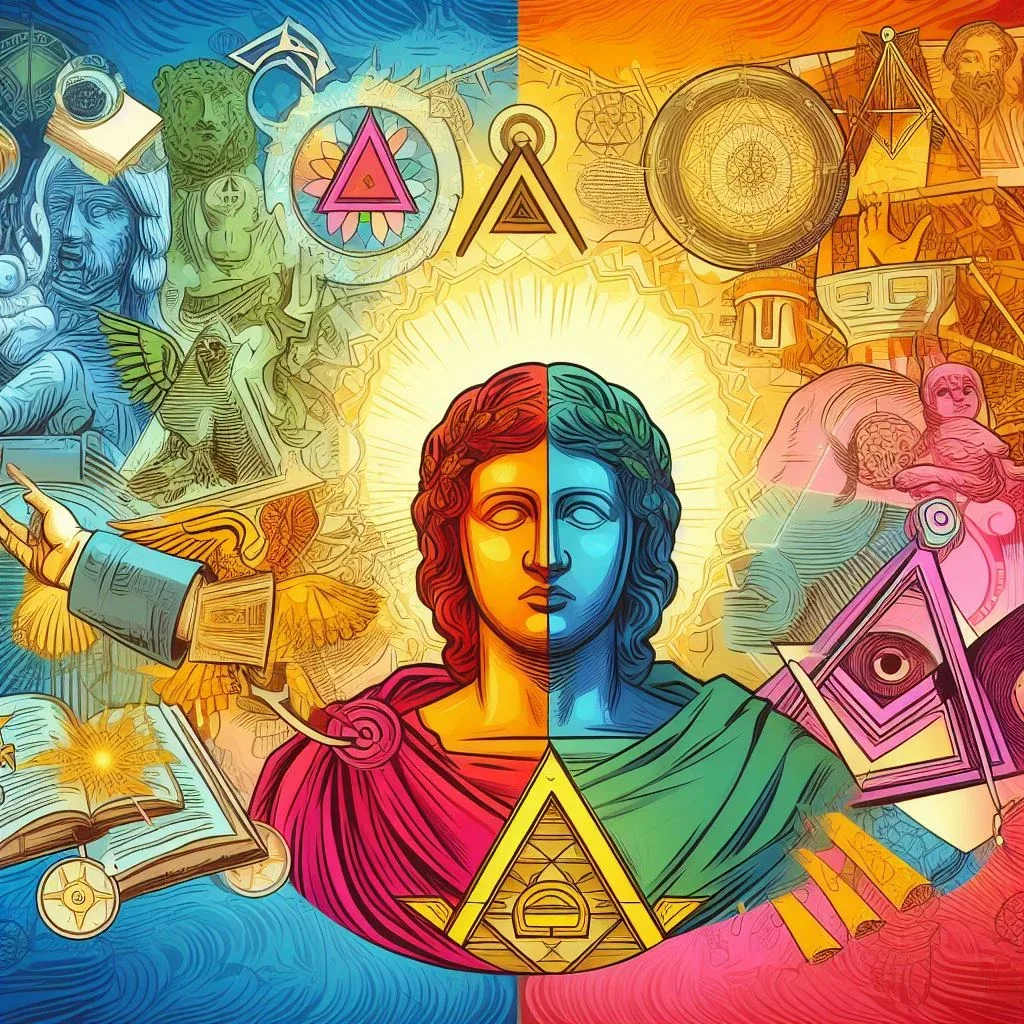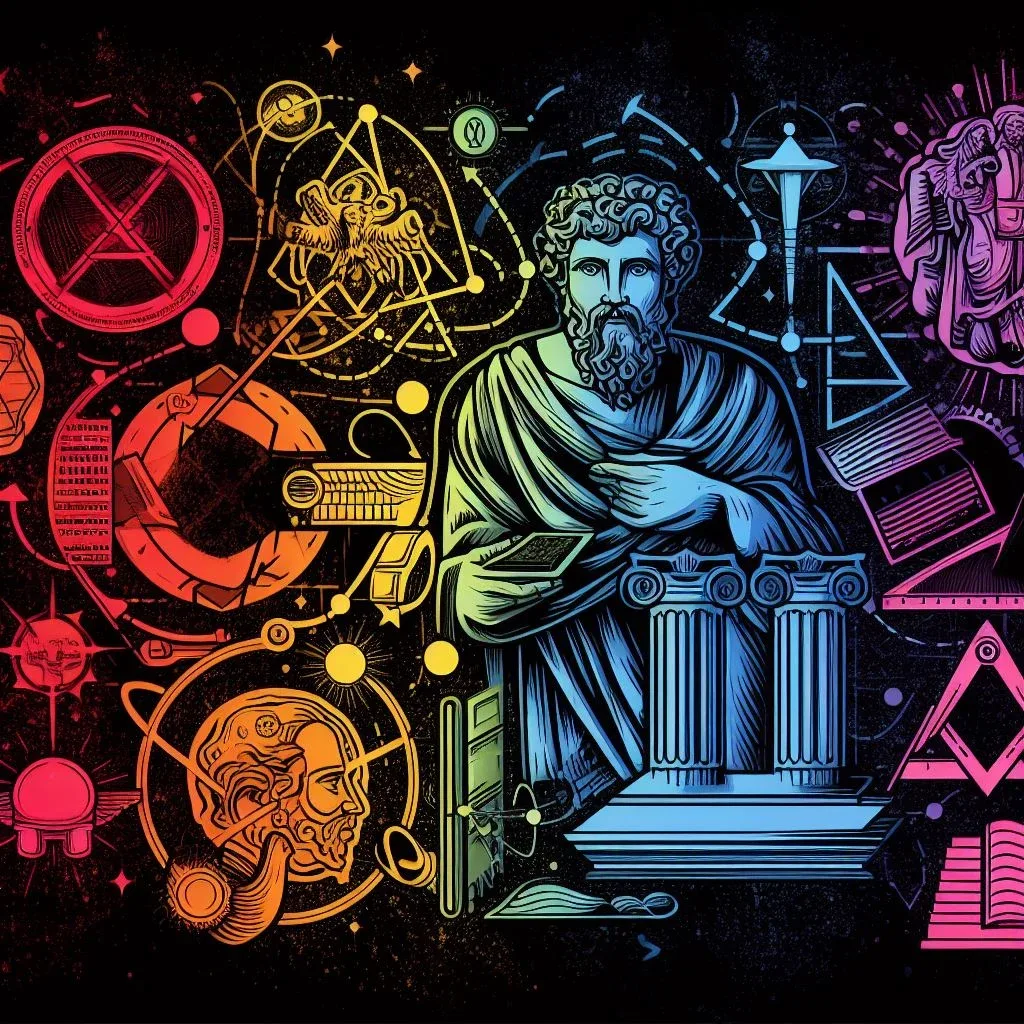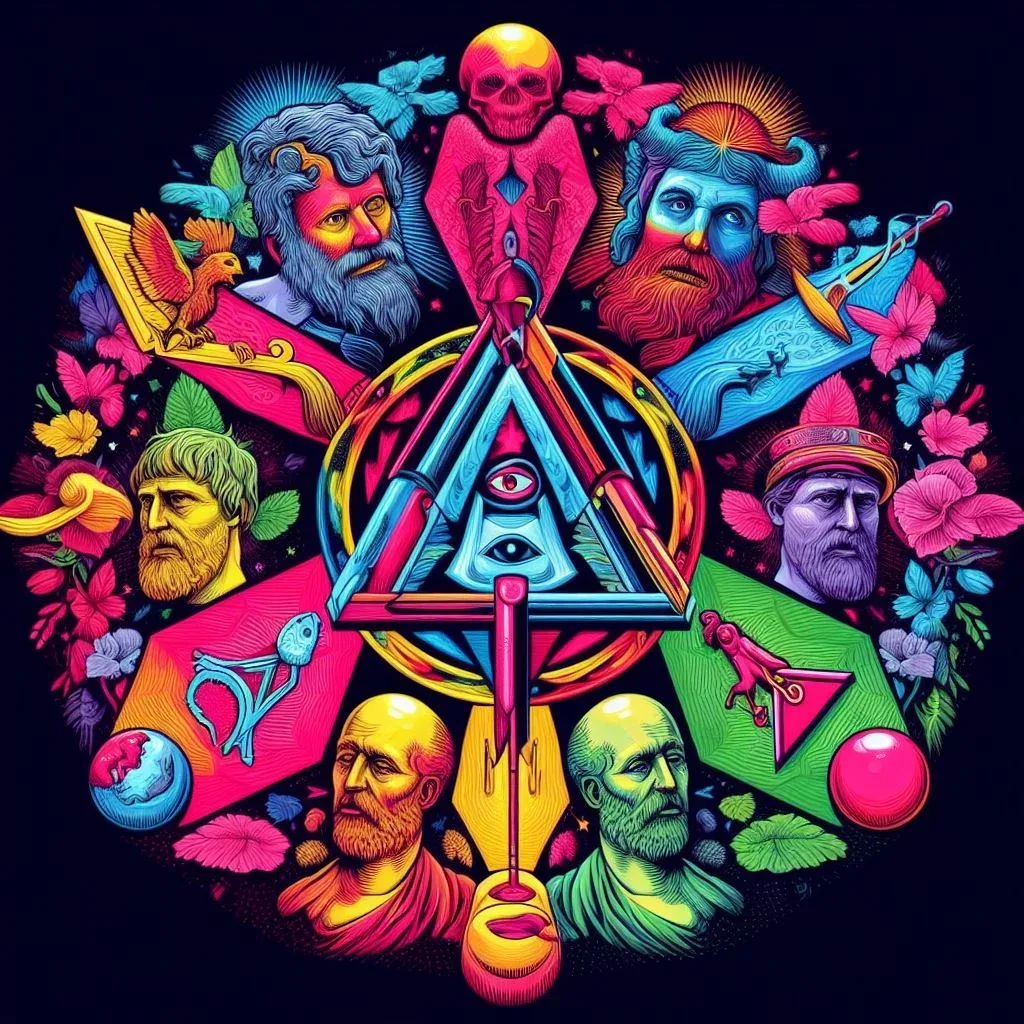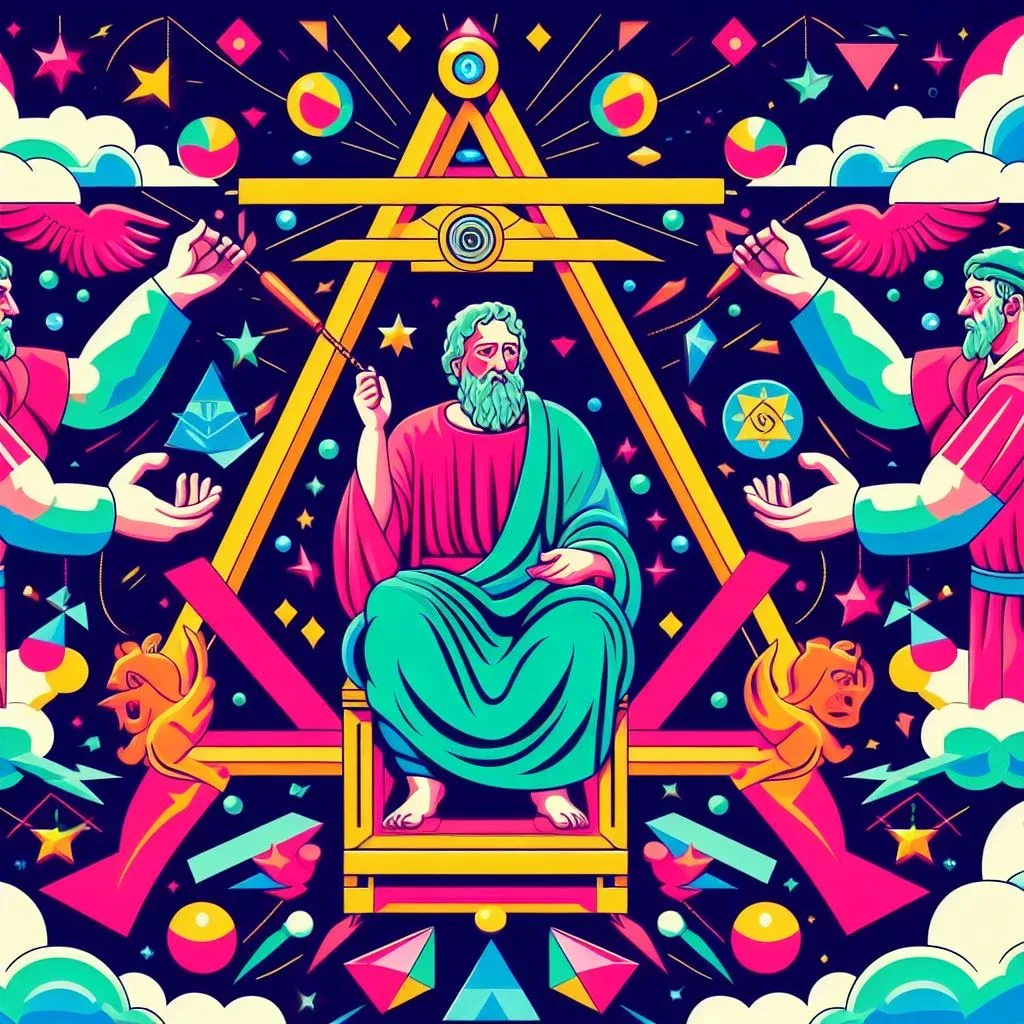Stoicism, an ancient philosophy that emphasizes virtue, resilience and emotional serenity, has been compared and related to Masonic teachings, which constitute the principles of Freemasonry, a fraternal and initiatory society. In this article, we will explore the possible relationship between Stoicism and Masonic teachings, seeking to understand the extent to which these two traditions can intertwine and influence each other.

Introduction: From Stoicism to Freemasonry
Stoicism, with its roots in ancient philosophy, has attracted people over the centuries due to its teachings about the pursuit of virtue, the calm acceptance of circumstances, and the development of wisdom. On the other hand, Freemasonry, a secret society that dates back to the late Middle Ages, is based on hermetic rituals and teachings passed down through generations. The relationship between these two traditions is complex and multidimensional.
The Principles of Stoicism

1. Virtue as the Supreme Good
Stoicism preaches that virtue, including qualities such as wisdom, courage, justice and moderation, is the highest good. The Stoic seeks to live in accordance with these virtues and improve his ethical conduct.
2. Internal Control over Circumstances
Stoics believe that we cannot control external circumstances, but we do have control over our internal reactions and choices. Accepting this limitation is a step towards emotional serenity.
3. Acceptance of Impermanence
Stoic philosophy embraces the impermanence of life and teaches us to value the present, accepting the ephemeral nature of all things.
4. Development of Reason
Reason and logic are fundamental tools in Stoicism, guiding actions and decisions based on rational principles.
Masonic Teachings

1. Ritual and Symbolism
Freemasonry is known for its rituals and symbolism, which are used to transmit hermetic and ethical teachings. Masonic rituals are held in Masonic lodges and serve as initiation ceremonies.
2. Ethical Principles
Freemasonry emphasizes the importance of ethical principles such as fraternity, charity, truth and justice. Freemasons are encouraged to live by these principles and improve their moral qualities.
3. Personal Development
Masonic teachings promote self-development and constant improvement of the individual. The Masonic journey is seen as a search for wisdom and a deeper understanding of life.
The Relationship between Stoicism and Freemasonry
The relationship between Stoicism and Freemasonry is complex and multifaceted. Both traditions share some ethical principles, such as the pursuit of virtue, an emphasis on wisdom, and personal development. However, Freemasonry is a secret society that uses unique rituals and symbolism, while Stoicism is a widely accessible philosophy.
The direct influence of Stoicism on Freemasonry is difficult to establish precisely, since Freemasonry incorporates a variety of philosophical and spiritual influences into its teachings. However, it is possible that some Stoic principles, such as emotional self-control and ethical development, found a place in Freemasonry over time.
Conclusion: A Reflection on the Relationship
Although the relationship between Stoicism and Freemasonry is not clear and direct, it is fascinating to note the similarities in their ethical principles and emphasis on personal development. Both traditions seek to guide individuals toward a more virtuous, ethical, and meaningful life.
Regardless of the historical relationship, the comparison between Stoicism and Freemasonry can serve as an opportunity for deeper reflection on how different philosophical and spiritual traditions approach similar questions. Perhaps by exploring the similarities and differences between these traditions, we can find inspiration for our own personal and ethical growth.
Thus, the relationship between Stoicism and Freemasonry remains an enigma, but like all great traditions, both offer valuable lessons about how to live a life of meaning, ethics and authenticity.
Frequently Asked Questions about the Relationship between Stoicism and Masonic Teachings
In this FAQ, we will address the most common questions about the possible relationship between Stoicism and Masonic teachings, exploring whether there are connections and influences between these traditions.

1. What is stoicism?
Stoicism is an ancient philosophy that emphasizes the pursuit of virtue, the calm acceptance of circumstances, and the development of wisdom as the means to a meaningful life.
2. What are Masonic teachings?
Masonic teachings are the principles of Freemasonry, a fraternal and initiatory society. They involve rituals, symbolism and ethical principles passed down through generations of Freemasons.
3. Is there a direct relationship between Stoicism and Masonic teachings?
The relationship between Stoicism and Masonic teachings is not direct. Although both traditions share ethical principles, Freemasonry is a secret society that incorporates various philosophical and spiritual influences.
4. What are the similarities between Stoicism and Masonic teachings?
Some similarities include the pursuit of virtue, the emphasis on wisdom, personal development, and ethical principles. Both traditions seek to guide individuals toward a virtuous and ethical life.
5. How might Stoicism have influenced Masonic teachings?
Although the direct influence of Stoicism on Freemasonry is unclear, it is possible that Stoic principles such as emotional self-control and ethical development found a place in Freemasonry over time.
6. How important is it to explore this possible relationship?
Exploring the possible relationship between Stoicism and Masonic teachings allows for deeper reflection on how different traditions approach ethical and personal development issues. This can inspire a broader understanding and more meaningful application of these principles in everyday life.
7. How can people apply these principles in their lives?
Both the principles of Stoicism and Masonic teachings can be applied to daily life. This involves seeking virtue, wisdom, ethical development and the practice of principles such as fraternity and truth in all areas of life.
We hope these answers have helped clarify the possible relationship between Stoicism and Masonic teachings and how these traditions can influence the search for a more ethical and meaningful life.





